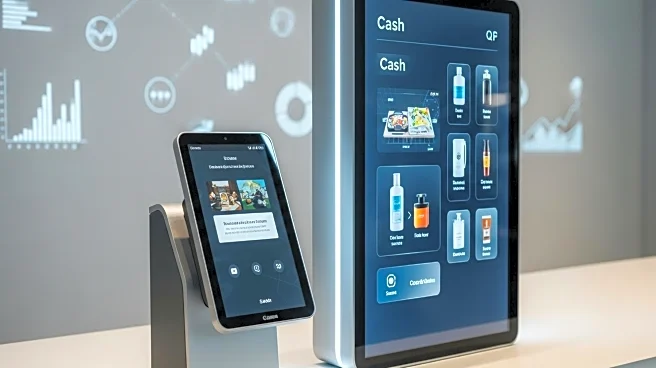What's Happening?
Convenience retailing is undergoing significant changes due to economic volatility and technological advancements. Art Sebastian, CEO of NexChapter, presented insights from CSP's Outlook Report at the Outlook Leadership Conference, highlighting the industry's crossroads. The report indicates that fuel margins are causing financial instability, with 62% of retailers citing them as a major concern. The decline in fuel trips, driven by electric vehicles and remote work, is pressuring the business model of convenience stores. Sebastian emphasized the need for retailers to shift from a fuel-first mindset to offering value and visits to customers. Loyalty programs and retail media are seen as transformative tools for customer retention and engagement.
Why It's Important?
The changes in convenience retailing have broad implications for the industry. As fuel trips decline, retailers must adapt to maintain profitability. The shift towards loyalty programs and retail media can enhance customer engagement and drive revenue. The adoption of artificial intelligence is crucial for operational efficiency and competitive advantage. Midsized retailers face decisions about consolidation or niche carving due to rising costs and competition. The industry's ability to adapt to these changes will determine its future success, impacting employment, consumer choices, and market dynamics.
What's Next?
Retailers are expected to focus on enhancing loyalty programs and integrating retail media to improve customer retention. The adoption of artificial intelligence will likely increase, providing opportunities for cost savings and improved operations. Midsized retailers may consider strategic moves such as mergers or niche specialization to remain competitive. The industry will continue to monitor economic pressures and technological advancements to navigate the evolving landscape.
Beyond the Headlines
The ethical implications of AI adoption in retail, such as privacy concerns and workforce displacement, may become more prominent. The cultural shift towards sustainable practices, driven by declining fuel trips, could influence consumer behavior and industry standards. Long-term, the convenience retail sector may see a transformation in its role within communities, focusing more on personalized services and sustainable operations.










